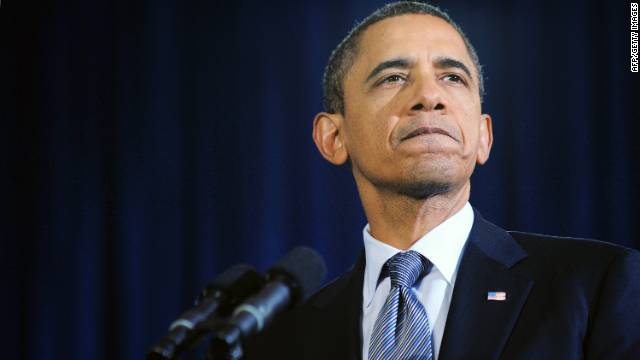
Congressional negotiators have come to an agreement they believe will prevent a government shutdown, according to several Democratic sources.
Negotiators were signing off on a massive spending bill that funds the government through October 1, 2012, they told CNN Thursday night.
Both the House and Senate are expected to vote on the conference report Friday.
Senate Majority Leader Harry Reid, D-Nevada, said negotiations were continuing on extending the payroll tax cut and other provisions that expire at the end of the year, including an extension of unemployment benefits and an increase in payments to doctors who provide Medicare services.
Democrats want these programs to be extended through 2012 , but they are weighing the idea of a fallback two-month extension to ensure there will be no negative impact on Americans if Congress fails to reach a broader deal.
A Senate Democratic leadership aide said the two-month extension "clears the way for negotiations to continue on a larger deal."
Debate over these issues and the proposed Keystone XL pipeline have stymied efforts to come up with a spending plan that would fund the government after midnight Friday.
Earlier Thursday, Reid and Senate Minority Leader Mitch McConnell, R-Kentucky, as well as House Speaker John Boehner and White House press secretary Jay Carney signaled progress toward reaching compromises on the two main pieces of legislation under discussion before Congress goes into recess until next year.
Reid and McConnell held an hourlong meeting Wednesday night that included Boehner, R-Ohio, in a last-gasp bid to end the political wrangling that threatened a partial government shutdown and raised public frustration with Congress even further.
The Senate was expected to reconvene Friday morning.
A poll released Thursday by the Pew Research Center for the People and the Press showed public discontent with Congress at record levels, with two-thirds of voters saying most lawmakers should be voted out of office next year.
Failure to pass the payroll tax measure, a major part of President Barack Obama's job creation plan, would cost working Americans an average of $1,000 in higher taxes next year.
Obama kept up the pressure on Congress to act, saying legislators "should not and cannot" go home for vacation scheduled to begin Friday without first passing the payroll tax-cut extension that will benefit 160 million Americans.
"There's no reason the government should shut down over this," he said.
After the Senate chaplain opened Thursday's session with a prayer for legislators to have "wisdom and understanding," Reid said in floor remarks that there was no need for him and McConnell to continue staking out their positions as they had in harsh language the day before.
Over the next few hours, Reid said, "We're going to try to ... work toward resolving some of the outstanding issues."
His remarks indicated the Senate would take up the spending proposal first, as sought by McConnell, to keep the government funded past the midnight Friday expiration of a temporary resolution passed earlier this year.
At the same time, Reid said, he and McConnell "have been in discussion" on the payroll tax measure and "we hope that we can come up with something that will get us out of here in a reasonable time in the next few days."
McConnell agreed with Reid, saying the two held "useful discussions about how to wrap this session up."
"We hope to be able to pass a combination of appropriation bills, and we are working hard to figure out a way to resolve the remaining differences on the payroll tax extension and the related issues that are important to both sides, and we are confident and optimistic we'll be able to resolve both on a bipartisan basis," McConnell said.
Boehner also took a conciliatory approach in comments to reporters later Thursday, calling for calm so that legislators can do their work.
"There's no need to shut down the government, and I see that Sen. Reid has signaled that may not happen," Boehner said.
He said the "easy way to untangle all of this" is for the House and Senate to pass the appropriations bill negotiated by a conference committee with members of both chambers, and then for the Senate to work out a compromise on the payroll tax cut measure.
Asked whether House members would go home for the holidays after passing the spending proposal, Boehner said there was no need for them to wait around in Washington for the Senate to do its work.
"Once the Senate acts, I'm committed to bringing the House back," Boehner said, adding he could do so "in 24 hours."
The comment was intended to address Democratic concerns that the Republican-led House would abandon the payroll tax-cut extension once the appropriations bill ensured government funding past Friday.
However, Carney expressed White House reluctance to trust House Republicans to return to Washington on their holiday and pass a measure they initially opposed.
"What is unacceptable is the idea that we should take a promise of future action on behalf of 160 million Americans when, as you know, once Congress passes a spending bill, they can go home," Carney said. "And it sounds like the speaker would let them go home. He might call them back, or he might not."
In the Senate, the payroll tax measure has faced an impasse over specific provisions sought by each party.
Senate Democrats proposed a new tax on income more than $1 million to help pay for keeping the lower payroll tax rate for another year, but Republicans have blocked the plan from proceeding on two separate occasions.
A Democratic source told CNN on Wednesday that Senate Democrats now plan to drop the so-called "millionaires tax" and will offer a new proposal instead.
No further details were immediately available on the new proposal, first reported by CNN, which emerged from a White House meeting between Senate Democratic leaders and Obama on Wednesday afternoon, the source said.
Source: CNN
Comment